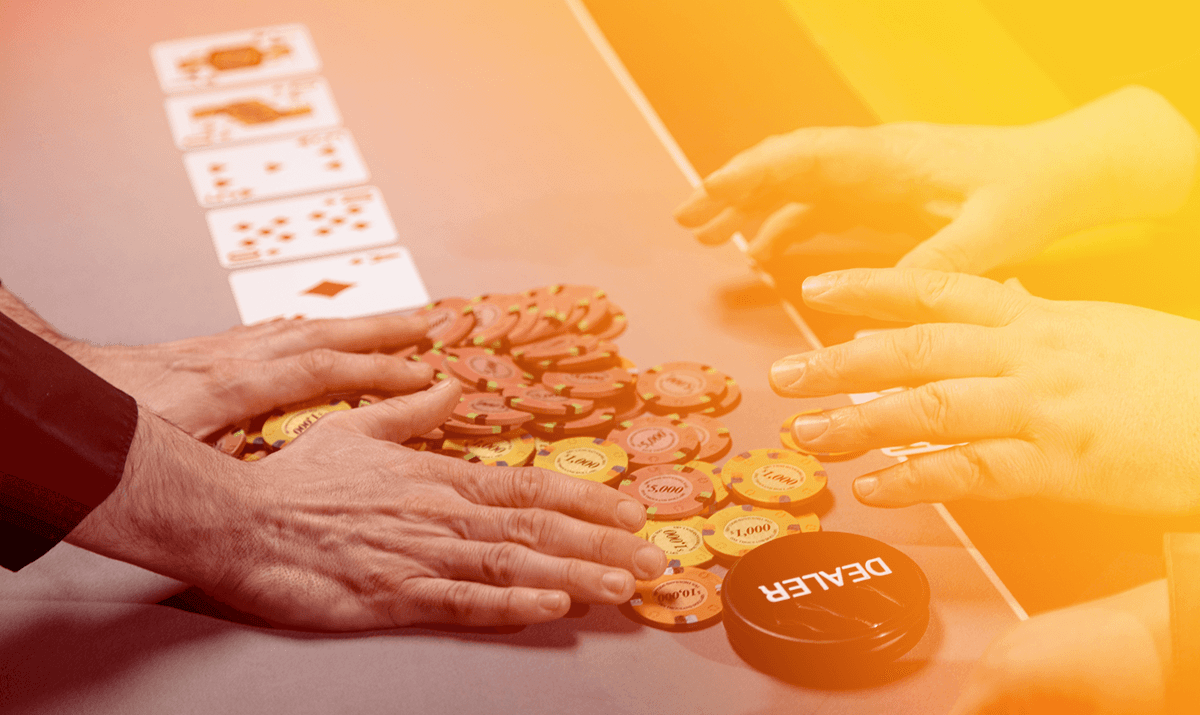PRO TIP: Don’t forget to watch the free lesson from CORE 2.0: Tournaments below.
Why do you play poker?
It’s a question that has been bouncing around the shiny, virtual poker corridors at Red Chip HQ recently. I’ve found there are three common answers to this question, only two of which are generally acknowledged.
1. To have fun. Thus if you enjoy poker tournaments, play them.
2. To make money. I addressed the relative economics of tournaments and cash games in my tournament series. In the U.S. in particular, high juice in live tournaments is a financial disincentive to play them, but it becomes less so as one climbs the greasy buy-in pole. Online rake is much lower, and the ability to multi-table ameliorates the tournament specialist’s other curse: variance.
3. To satisfy some deep-rooted, and typically unpleasant, psychological need, that has nothing to do with having fun or making money. I won’t follow this path here, but it is useful to remember that many poker players, particularly in a live setting, are neither there to have fun nor to make money. And, yes, I know it sounds strange, but if you’ve played more than twenty hours live, you also recognize that this is true.
I would like to suggest to those of you who avoid tournaments that they require a diverse and interesting set of skills, and that they are entertaining. More specifically, and as a former educator, I am fascinated by how one teaches, or equivalently learns, the broad array of necessary skills.
So what are those skills?

Tournament Poker Skills You Need To Win
You need to be proficient at playing a wide range of stack depths, and sufficiently mentally nimble to adapt as your stack and those of your opponents shrink. You must adjust when the antes kick in, recognizing how calling odds and other metrics change. Your bet sizing, both preflop and postflop, needs to incorporate the shortening effective stacks. Accurate bubble play and laddering require a detailed knowledge of ICM, including knowing when you can best pressure your opponents, and when you need to take your foot off the gas in response to their pressure. And those push-fold charts, along with 3-bet shove charts, are critical to success.
As part of my job here at Red Chip, I like to keep an eye on what other training sites are doing. Because I enjoy tournaments, I pay particular attention to how tournament theory is presented. Our competitors are good. Really. I have been overwhelmed by the highly-detailed open-raising charts, even though at my age and mental acuity I could never hope to memorize them. The exquisite description of how our blockers impact postflop play, shading decisions by a couple of percentage points in one direction or another, are dazzling examples of the power of combinatorics in poker. It’s all very impressive.
And yet the one element of tournament play which is largely lacking from these courses is, in my opinion, the most important of all. It’s profiling, and thus exploiting, your opponents.
Exploitative And GTO Poker Strategy In Tournaments
This provides an interesting wrap-around to the cash versus tournament discussion. Cash-game theory is becoming increasingly dominated by GTO solvers, and the cunning simplifications theorists are finding to make them usable by entities with a heartbeat. Beyond your opponents’ ranges, this approach to NLHE naturally minimizes the importance of who it is that you’re playing against.

Since we’re a responsible training site, dedicated to bringing you cutting-edge information, we are following that trend. And yet, despite GTO solutions being used for tournament analysis long before anyone attempted to apply them to deep-stacked cash, I am confident that tournament play will continue to be more about the people than the math for many years to come.
On what do I base this confidence? Go play a $400 buy-in tournament. Marvel as some of your opponents limp-fold off a 10bb stack. Playing literally perfectly below 20bb or so is quite simple if one puts in a little effort, and yet many players in tournaments with five-figure first prizes play so far from perfectly it’ll make your eyes bleed. Why? They’re playing poker because it is fun.
Now fire up a 2c/5c microstakes game online. I doubt you’ll have to wait more than ten minutes before someone pulls the “c-bet range for 1/3-pot” programmed play on an appropriate board, and does so because they’ve studied and absorbed poker training material.
To Crush MTTs, Profile Your Opponents
If tournament poker is a people game, how do you teach it? That’s the question we had when our content acquisition team sat down with WSOP bracelet winner Chris “Fox” Wallace. The end result of that meeting was our recently-published MTT course by Fox, included in both our CORE and PRO subscription services. The solution, I think, is as ingenious as it is effective.
Fox starts off his course by describing the profiles of the players at the table. Initially these are based on the limited information of appearance, continuously refined and updated through observation of their play. The course then proceeds by playing out an entire simulated tournament against these players, and others that filter in as some of the early contenders bust.
Note that this isn’t just another video series in which someone who is very good at poker talks about hands from a specific tournament. Fox artfully crafted the simulation such that all of the key scenarios you might face in a tournament (getting short early, playing as the big stack) are covered, with detailed explanations of the underlying theory.
I realize that I work here and am thus somewhat predisposed to liking our content, but to me this is some of the best material we have ever published. The tournament fundamentals of stack-depth adjustments and push-fold and the rest of it are all there. But seeing in detail how a tournament professional negotiates an entire tournament, from shuffle-up-and deal to (spoiler alert) taking it down, with this particular emphasis on how each player type is handled, is a tremendously effective and informative way of communicating what tournament play is all about.
And here’s a huge bonus. Learning about tournaments in this way is just as fun as playing them.
